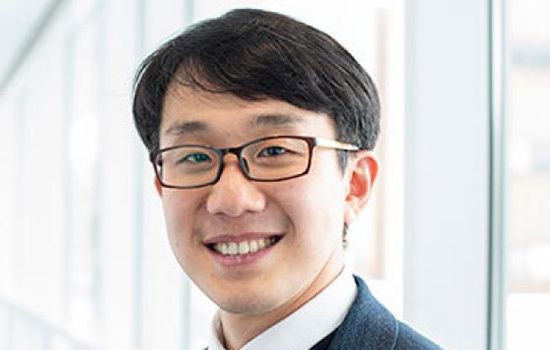
BME7900 Seminar: Esak (Isaac) Lee (Cornell BME)
Microphysiological Human Lymphatic System (Tenure talk)
I have emerged as a leader in developing and engineering three-dimensional (3D) microphysiological systems (MPS) of human lymphatics, aimed at advancing our understanding of lymphatic functions and dysfunctions and creating new therapeutic strategies for lymphatic-related diseases such as (i) lymphedema, (ii) cancer, and (iii) neurological disorders. My journey into lymphatic research began during my PhD, where I studied tumor-lymphatic interactions in mouse models, which later evolved into human MPS technologies during my postdoctoral training. Lymphatic vessels (LVs) play a vital role in draining interstitial fluid and maintaining tissue fluid balance; dysfunction in these vessels can lead to lymphedema, characterized by swelling from fluid accumulation in different organs. Additionally, lymph fluids contain critical biomolecules (e.g., antigens, metabolic waste, albumin) and cells (e.g., immune cells, cancer cells) that influence immunity, waste clearance, and cancer progression. My lab develops and engineers MPS to recreate the complex structures of lymphatic vessels, including the initial and collecting LVs with their distinct button- and zipper-like junctions and primary and secondary lymphatic valves—key functional features of native LVs.
Since joining the Meinig School of Biomedical Engineering in July 2019, I have assembled a team of students from diverse backgrounds to advance the frontiers of biomedical engineering. As an assistant professor, I have published 24 out of 43 papers, including corresponding author publications in Biofabrication, Lab on a Chip, PNAS, ACS Biomaterials Science and Engineering, Microcirculation, Advanced Biology, Cellular & Molecular Bioengineering (CMBE), and Scientific Reports, with two more papers currently under revision. My lab’s innovative work has been recognized through several prestigious awards, including the NSF CAREER Award (2024), the BMES CMBE Editors’ Choice Award (2024), the CMBE Young Innovator Award (2023), the Emerging Leader in Biological Engineering from the Journal of Biological Engineering (2022), and the Microcirculatory Society Award for Excellence in Lymphatic Research (2021). In recognition of my research contributions, I was appointed as the Nancy and Peter Meinig Family Investigator in the Life Sciences by the Provosts of Cornell University (2019-present). I have secured five NIH grants (two R01s, three R21s) as Principal Investigator (PI), alongside additional funding from the Adam & Rachel Broder Grant, KIST Fund, and the Multi-Investigator Seed Grant, bringing my lab’s total grant funding to approximately $6.2M.
In my role as an educator, I have taught BME1310, Introduction to Biomedical Engineering (2020-2023), at the undergraduate level, and developed a graduate course, BME6230, Cancer & Immuno-Engineering (2022-2024). In recognition of my teaching excellence, I received the James & Mary Tien Excellence in Teaching Award from the College of Engineering in 2023. My students, both graduate and undergraduate, have garnered numerous accolades and are thriving in their respective careers.
These accomplishments are not solely mine, but have been made possible with the support of the BME department, my faculty colleagues, staffs, and the students and fellows in our lab. I am deeply appreciative of their contributions and look forward to sharing more details in the BME7900 seminar series.